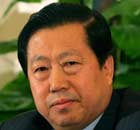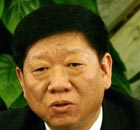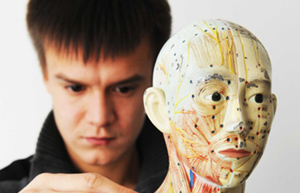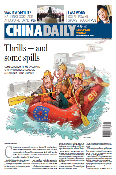GE setting up 6 healthcare R&D centers in China
Updated: 2010-11-30 10:33
By Chen Qide (China Daily)
SHANGHAI - GE will invest $500 million in research and development (R&D) in China, much of it to develop more new medical facilities in the next three years.
"It is our commitment to the continuous expansion in the Chinese market, echoing the country's move to reform its medical services," said Diana Tang, general manager of Clinic System Business, GE Healthcare China.
The investment, part of GE's $2 billion for the Chinese market through 2012, will be used to expand R&D and innovation capabilities in China to create new technologies in healthcare, said Tang.
Worldwide, GE Healthcare is investing $1 billion each year in R&D, more than 6.7 percent of its revenue in 2009.
The $500 million will largely go to setting up six R&D and innovation centers in China in the next three years, the first three to be built in Chengdu in Sichuan province, Xi'an in Shaanxi province, and Shenyang in Liaoning province. The locations of the other three are under discussion, Tang said, adding that 1,000 engineers will be hired for the new centers.
The centers will be closely linked to GE's current R&D activities in Shanghai, Beijing, and Wuxi in Jiangsu province to better meet the needs of the local market, said Wu Tao, chairman of GE Medical Systems (China) Co Ltd.
"Research will be focused on developing medical facilities for cancer, stroke, and other age-related diseases," Wu said.
He said GE Healthcare will spend $8 million on enlarging its Wuxi R&D center this year. The project will be completed by the end of next year.
Construction of the R&D centers is intended to increase GE Healthcare's medical product sales in China from this year's estimated $1 billion to $3 billion within five years to advance its "in China, for China" strategy, launched in 2007, Tang said.
The strategy covers such fields as ultrasound, CT and monitoring systems, including its first B30 patient monitoring system, which was developed for China's market by adapting global technologies.
B30 monitors, launched last week, target the emerging healthcare market in China to help improve basic healthcare conditions for people here, said Xi Shui, general manager of Patient Care Solutions, GE Healthcare China.
According to the China Association for Medical Devices Industry, the penetration rate of patient monitors in China is only 20 percent, as opposed to 80 percent in the United States.
|
|||||||
"The market has such big potential, it encourages us to invest more in developing new products for it," Xi said.
GE Healthcare now has 17 ICFC products launched in or in the pipeline for China, with a total investment of around $70 million, part of its global "Healthymagination" strategy, valued at $6 billion, Tang said.
At present, 85 percent of the products from the Wuxi factory are exported overseas, and only 15 percent sold to the domestic market, Xi said.
"But efforts will be made to balance that ratio in the next five years to reach a fifty-fifty rate," he said.
China is expected to require 120,000 patient monitors annually, valued at $200 million, but GE's market share is only at 15 percent, lagging far behind its 30 percent of the $3.2 billion sales in the global market, Wu said.
"To expand the market share in China, what we can do is know more about customers and develop more new products," Tang said.
GE Healthcare has invested $30 million in China this year to develop new products and $10 million to develop personnel.
Paper's Digest

China bags Asiad team tennis title after 24 yrs
Wimbledon semifinalist Li Na led host China to capture the team tennis title on Tuesday at the Asian Games, accomplishing her Asiad tour with three consecutive victories.
China rate rises no panacea to curb inflation: PBOC adviser
Specials

Safeguarding environment a priority
China continues to face mounting pressure to curb environmental degradation, despite progress in reducing pollution over the last five years, the environmental protection minister warned.

Employment to remain a continuing challenge
China's top labor official said the country will face a tough employment situation in the next five years.

Russian possessed with TCM
Born into a family of doctors, Maxime became interested in Traditional Chinese Medicine (TCM) at the age of 12, after hearing about TCM theories such as health preservation and recuperation.




